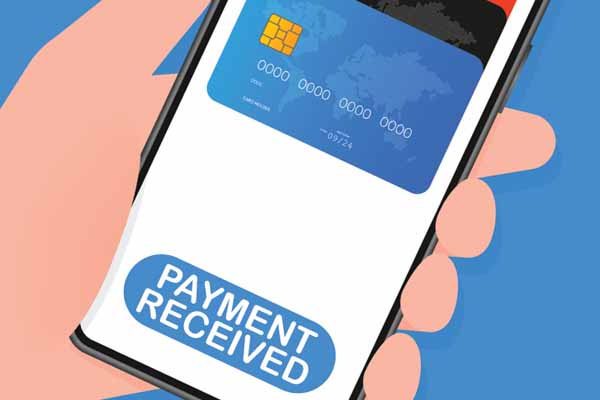
Recently introduced federal legislation could spare physicians from electronic funds transfer (EFT) fees, which payers routinely charge as a condition of electronic payment.
The move follows advocacy by the Texas Medical Association and others in organized medicine who’ve long sounded the alarm about unfair business practices related to mandatory, percentage-based EFT fees – yet another erosion of physician payment, practice viability, and patient access to care.
“It takes a while, but people finally hear you if you keep going at it,” said Gary Sheppard, MD, an internist in Houston and chair of TMA’s Council on Socioeconomics.
U.S. Rep. Greg Murphy, MD (R-North Carolina), introduced the No Fees for EFTs Act, HR 6487, on Nov. 28, along with co-sponsors on both sides of the aisle: U.S. Reps. Ami Bera, MD (D-California), Morgan Griffith (R-Virginia), Derek Kilmer (D-Washington), Mariannette Miller-Meeks, MD (R-Iowa), and Kim Schrier, MD (D-Washington). The legislation would prohibit payers from imposing such fees, which can be as high as 5%.
“Greedy health insurers attempt to scalp doctors and patients every step of the way throughout the care process to line their pockets,” Representative Murphy said in a joint press release with the other bill co-sponsors, the American Medical Association, and the Medical Group Management Association (MGMA). “We don’t tolerate paying fees to receive direct deposit of a paycheck; likewise, doctors and patients should not be forced to pay predatory fees on electronic payments on essential health services.”
The legislation is the latest development in the yearslong – and often rocky – transition from paper checks to electronic payment underway since the early 2000s.
The Affordable Care Act established standards for paying physicians via EFTs, such as requiring all payers to offer EFTs, with the aim of increasing efficiency and saving money associated with the manual processing of paper checks.
A 2012 analysis by the Centers for Medicare & Medicaid Services (CMS) predicted federal rules encouraging the adoption of electronic payments would save public and private payers, third-party administrators, hospitals, and physician practices $3 billion to $4.5 billion over 10 years.
In August 2017, CMS posted a notice informing payers they weren’t allowed to charge physicians a fee associated with EFTs. But the notice later disappeared, and, without intervention, such fees flourished. Nearly 60% of medical group respondents reported payers were charging EFT fees to which they hadn’t agreed, according to a 2021 MGMA Stat poll.
That year, TMA, AMA, and dozens of other state medical associations and national specialty societies asked CMS to issue guidance affirming physicians’ right to choose and receive basic EFTs sans fees for additional services and to enforce such rules.
“Physicians are left with no option but to ‘pay to get paid,’” the signatories wrote in the October 2021 letter.
More recently, TMA implored CMS to resolve the issue as part of the 2024 Medicare physician fee schedule. Although CMS did not address EFT fees in its proposal, TMA President Rick Snyder, MD, prioritized the issue in a Sept. 8 comment letter to the federal agency, signaling its importance.
“TMA urges CMS to address via regulation the excessive [EFT] fees charged by payers when paying physicians what they have earned,” he wrote.
Organized medicine is hopeful that what CMS failed to resolve in the 2024 fee schedule could be achieved by HR 6487. TMA, AMA, and others were quick to support the legislation.
Dr. Sheppard says its passage would benefit physicians like him, whose independent practices already operate on thin margins.
“The insurance companies are actually saving money [by using EFTs],” he told Texas Medicine Today. “And yet they still want to charge us [added fees].”
In the joint press release, AMA President Jesse Ehrenfeld, MD, agreed the bill “would give much needed relief to physician practices and score a victory for common sense.”